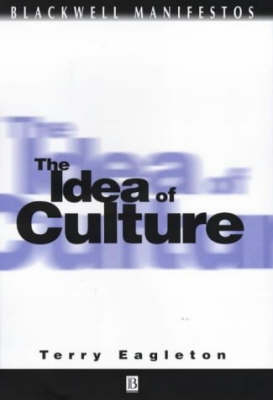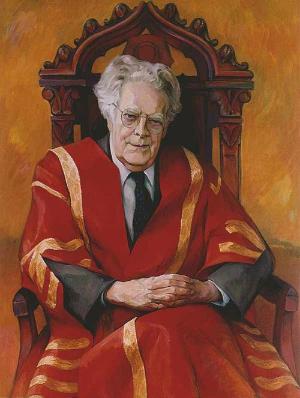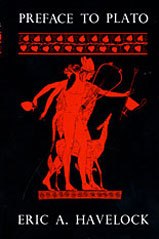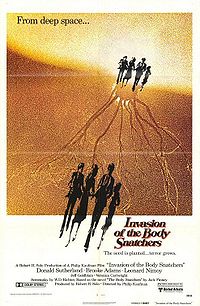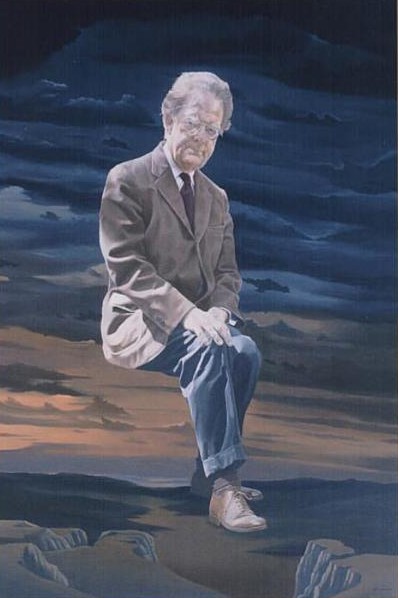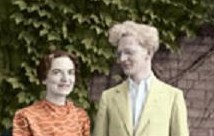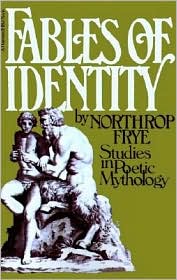
Frye was different in many ways. In this respect, he was like his mentor, William Blake, who has always presented problems, even anxieties, to literary scholars. Somehow Blake was outside the main current, and Frye sort of is, too.
Frye was different, to begin with, in the fact that he validated human desire. I noted before that he believed desire was good. In this, Frye was in opposition to most traditions and unlike most intellectuals. This difference in attitude has profound significance and profound effects on his thinking generally, but the validation of desire was not the only difference that sets Frye apart. Another important difference is that he thought a good deal about the question what is the social function of literature.
This is not a question that attracts literary scholars. It isn’t easy to think of any conference on the topic or anybody who got a SSHRC grant to investigate the question, what is the social function of literature? even though it seems to be a rather obvious question and one of considerable, again obvious, importance. Frye was different — he thought about this throughout his career. The question in true Frye fashion points to a prior question, which is: does literature has a social function? Frye insisted that it does have a social function, and then went on to investigate what that function was.
It is interesting that literary critics have not bothered with either of these questions much. Critics did talk about this before Frye (a bit, anyway), but after Frye — after his reputation collapsed in the 1970s — no one seems to even notice that it is a question. Poststructuralism was hardly interested. Poststructuralism is essentially a denial of value or function to literature — this neutralization is a basic theme of Paul de Man, for example.
The logic of the New Historicism is to deny the existence of a category called ”literature” altogether; there are just texts, and what is called “literature” is just an elitist preference for one text over another. Since there is no such thing as literature, the whole question of whether it has a function or not is superfluous, even meaningless. What has been called literature is primarily a display of the preoccupations, prejudices, and anxieties of the author, exactly like any other text
The social function of literature is a difficult topic because it implies the further question, why study literature? (and then, why have English departments?). In the past, there were theorists who asked what the value of literature is — “value” in the sense of some inherent importance that is realized by the individual reader-consumer of literature, some private benefit. “Social function” is a different concept, and refers to some purpose in societal terms, not just for the individual. For Frye, literature has both “value” and “social function,” too.
Early theorists, say Plato, saw literature as a function of delusional desires or as an instrument of instruction or indoctrination. Aristotle’s Poetics assigns a psychological value to literature in his conception of catharsis: drama resolves difficult emotions by purging them (I. A. Richards and Kenneth Burke are in this “psychological” line before Frye). Literature may also furnish enjoyment for those with leisure to enjoy such things. But the standard attitude is that literature, like works of art generally, belongs to an owning elite who control such works, enjoy them, and pay the artists who produce them. Special people consume the work of art and benefit from it, as well as determining its content. Literature is a kind of tribute to the owner, an elite gratification.
Out of this model comes the view of literature as an object — an object of consumption — a notion preserved in the tradition that literary criticism is a form of evaluation. “Critic” after all means “judge.” The connoisseur-judge consumes the work of art and decides its value, like a wine expert sampling a particular vintage and pronouncing its value, or to use Frye’s wonderful derisive metaphor, like a judge awarding ribbons at a cat show.
What makes Frye so interesting in this context is that he insisted that literature is a social power: it is a power with a social function. He struggled to formulate or theorize this conviction, that literature participates in the construction of society, above all the construction of a better society.
Thus literature is part of a democratic and emancipatory struggle. It is inevitably involved in the question, what would a better society be like? and so brings us back to the prior concern, in Frye, the concern of desire, of what we desire—and do not desire.
Again, Frye was different.
